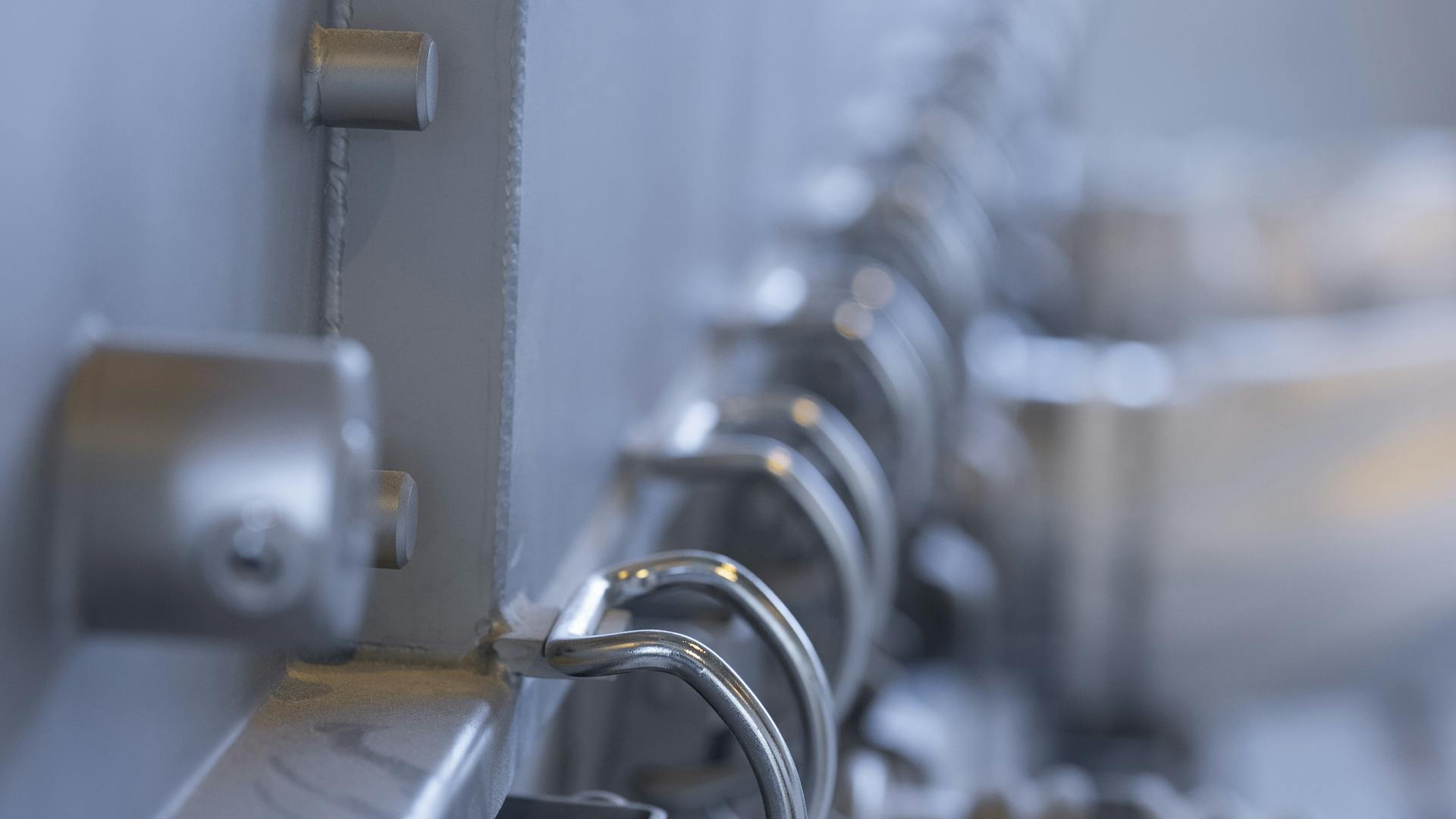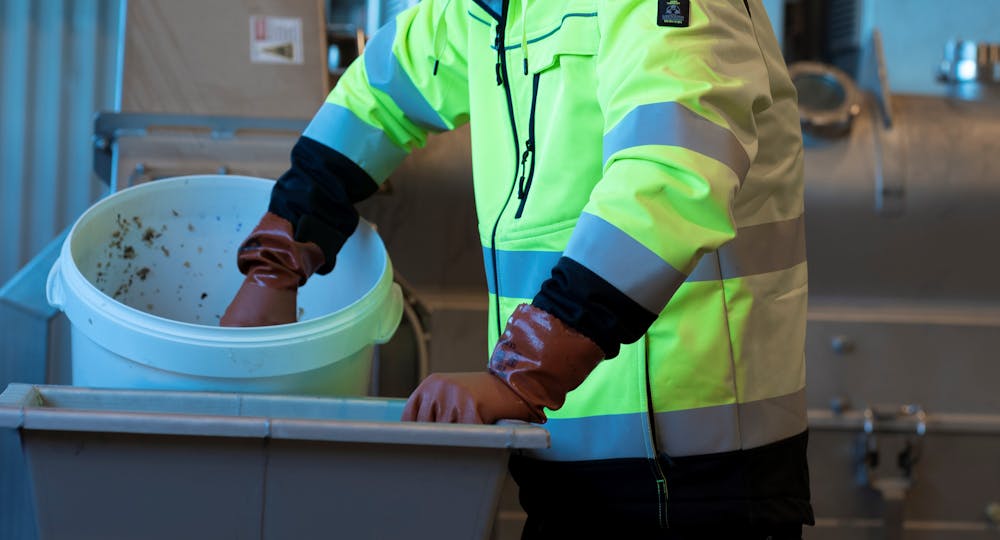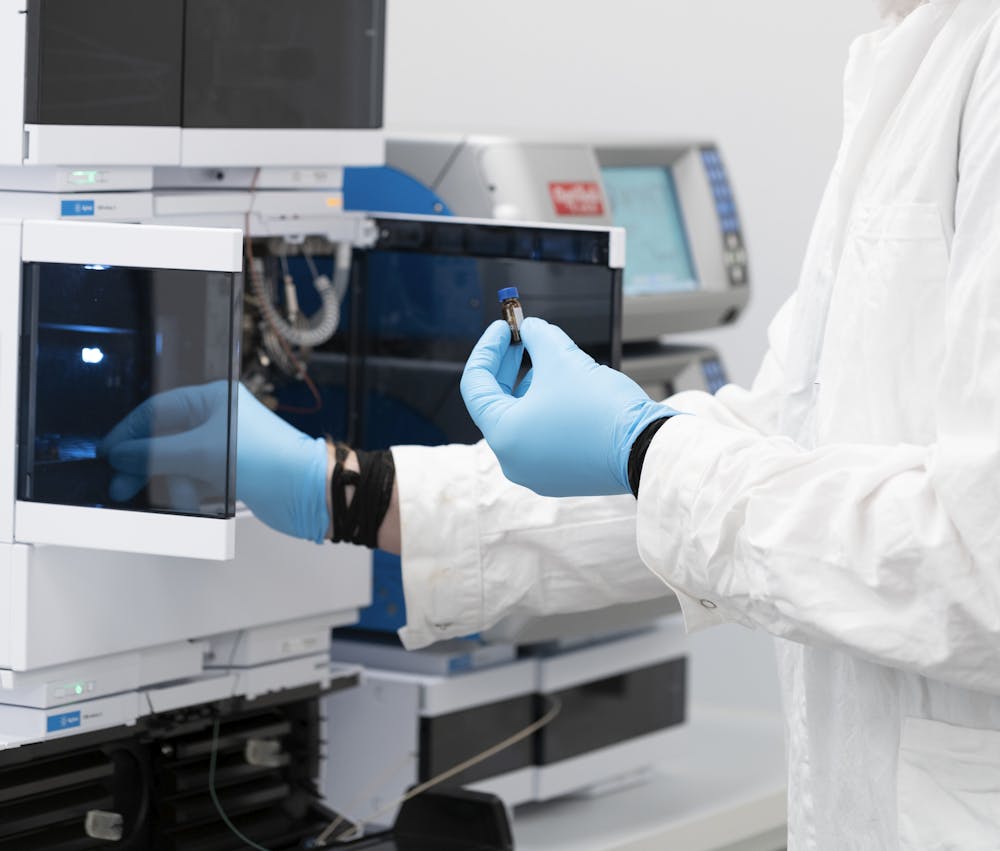
Facilities & projects

Pilot facility at Husøy
Our pilot facility on Husøy near Avaldsnes, Norway, is a reception and processing facility for the pilot and small-scale production. Harvesting takes place in close proximity to the pilot facility’s location. Next steps include up-scaling the facility to meet the demand of our future biorefinery demonstration plant.

Oewa Laboratories
Our in-house laboratory is equipped with state-of-the-art HPLC (High-performance Liquid Chromatography), SEC-MALS (Size Exclusion Chromatography with Multi-Angle Light Scattering), FTIR (Fourier-Transform-Infrared) and Raman spectroscopy. The laboratory enables us to perform in-depth analyses, quality control, advanced research and product development.
NMR spectroscopy analyses are performed at the University of Bergen.

Piloting partners
Alginor conducts large-scale pilot runs at the following facilities: Borregaard Biorefinery Demo in Sarpsborg (pictured), Bio Base Europe Pilot Plant in Ghent, Belgium, and Nofima Biotep outside Tromsø.
External piloting offers valuable insight into process optimisation and equipment selection.

Fucomed
Our Fucomed project is an industrial development project exploring fucoidan’s potential in bio-medical applications in collaboration with the University of Bergen, the University of Oslo and the KTH Royal Institute of Technology in Stockholm.
The main objective of the project is upscaling the extraction process for fucoidan from lab-scale to industrial scale for the production of pharmaceutical and medical applications and devices.
Fucomed has an estimated budget of NOK 23.2 million. NOK 16.24 million of the funds for this project will come from a grant from the Norwegian Research Council. The project is expected to be completed in 2024.
Cellunor
The Cellunor project focuses on development and optimisation of processes for extraction of kelp-based cellulose ingredients and derivates, including, e.g., nanocellulose, based on L. hyperborea, for various applications within pharmaceuticals, cosmetics, and nutraceuticals, e.g., dermal lotions and creams.
The project period is from 1 September 2022 until 31 August 2025. The project has a total budget of NOK 32 million and is funded at 50% aid intensity by the Research Council of Norway (RCN).
ALEHOOP
ALEHOOP is an international consortium project focusing on combining proteins from marine and terrestrial by-products into novel food and feed products. Alginor’s role in the project is to analyse the biomass and the proteins, and supply 12 companies spread over Europe with proteins from kelp by-products. The proteins will be used for manufacturing a variety of products including, among others, protein bars, shakes and vegetarian meat alternatives.
Alginor’s project budget in the ALEHOOP project is NOK 5 million. NOK 4.1 million is funded by a grant awarded by the European Union. The project is expected to be completed during 2024.
The project has its own website. View it here.
CIRCALGAE
CIRCALGAE is a European Innovative Action project aiming to boost the blue bioeconomy by valorising currently underexploited side-streams in the micro and macroalgae industry.
21 European partners participate in this project. Beside Alginor, Ceamsa, Hispanagar, Nordic Seafarms are among the suppliers of macroalgae and biorefinery side-streams. The Spanish research institute IATA-CSIC and KTH Royal Institute of Technology will contribute with an in-depth characterisation of the side streams and identify underexploited high-value compounds with potential use food, feed, and cosmetic applications.
The total budget for the project is €10.3 million, of which €0.75 million is allocated to Alginor. Aid intensity is 70%.
Algefilm
Algefilm
The objective of our Algefilm project is to utilise components in Laminaria hyperborea for the production of sustainable alternatives to single-use plastics. The project is carried out by Hypomar AS in partnership with Oewa AS, with Nofima and RISE PFI as suppliers, and Notpla, Elopak and Borregaard as subcontractors.
The Research Council of Norway funds the project at 70% aid intensity, giving Hypomar AS a grant of NOK 12.6 million, for a total budget of NOK 18 million. The project is expected to reach completion during 2024.
iCULTURE
The iCULTURE project began on 1 September and consists of 17 participating companies and research institutions, seeking to identify high-value bioactive compounds in the residual side streams, and ultimately establish zero-waste value chains. Working across disciplines, the consortium will employ techniques in bioinformation, biotechnology, synthetic biology, and bioprocessing, to develop a set of three digital toolboxes which can prospect for new species of seaweed and also utilize these in microbial fermentation, with a goal to use these natural resources responsibly and sustainably.
iCULTURE is coordinated by NTNU and funded by the European Union under the Horizon Europe programme framework with a total budget of €6 million.
Alginor’s extensive publically funded project track record
